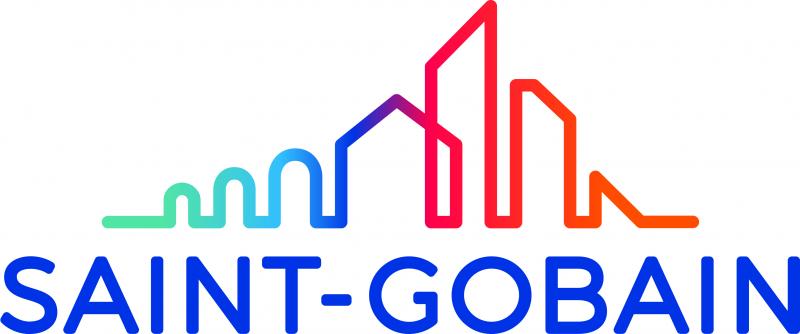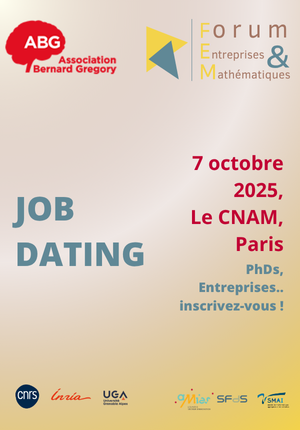Control of Biocathodes for Electromicrobial Valorization of CO₂ and H₂
| ABG-132463 | Sujet de Thèse | |
| 11/06/2025 | Autre financement public |
- Biotechnologie
- Génie des procédés
Description du sujet
The transition to a low-carbon, circular economy requires innovative biotechnologies that harness nature’s ability to convert waste into valuable resources. Electroactive microorganisms (EAMs) are central to this revolution. By driving redox reactions in bioelectrochemical systems (BES), these microorganisms enable the sustainable conversion of waste into energy and high-value molecules [1]. Bioelectrochemical systems (BES), described as electrochemical reactors in which oxidation and reduction reactions are biologically catalyzed at the respective electrodes, have emerged as a potentially more energy-efficient and sustainable method for treating domestic wastewater while simultaneously recovering electricity (microbial fuel cells) or chemicals (microbial electrolysis). Thanks to their modular structure, these processes allow physical separation between the oxidation of complex organic substrates derived from agricultural waste and the synthesis of high-value bio-based molecules [2]. This innovation, previously explored in the BIORARE project, reached a technology readiness level (TRL) of 4, but only for acetate production. The synthesis of other, more complex organic molecules remains a technological challenge.
The ongoing ElectroMIC project (https://www.pepr-bioproductions.fr/projets-finances/nouveaux-schemas-de-transformation-de-la-biomasse/electromic) aims to overcome this limitation by implementing a compartmentalized structure with three distinct sections: an anodic compartment responsible for the oxidation of waste using diverse microbial consortia; a cathodic compartment in which an electrotrophic microbial community synthesizes carboxylates; and a central compartment dedicated to converting these carboxylates into higher-value industrial molecules using selected or genetically modified microorganisms. The objective of ElectroMIC is to establish a proof of concept (TRL 3–4) for effective coupling between environmental and industrial biotechnologies.
Among the challenges associated with this process, the control of microbial biocathodes is a key issue. Fine-tuning operating conditions is a central lever for steering microbial metabolic pathways but remains complex due to the interdependence of parameters and the dynamics of microbial populations.
The proposed PhD project aims to develop an innovative bioelectrochemical process using gas diffusion electrodes (GDEs) as biocathodes, enabling the coupled valorization of CO₂ and H₂ through targeted microbial metabolic pathways (e.g., hydrogenotrophic methanogenesis, homoacetogenesis, organic acid reduction, chain elongation, etc.). The doctoral candidate will design and operate an experimental system based on biolectrochemical reactors that allows the dynamic control (via actuators) of the partial pressures of CO₂ and H₂ to influence the energy yield (ΔG) of microbial reactions, community structure, and conversion pathway yields which will be characterized. Carefully selected online sensors will monitor gas compounds (CH₄, CO₂, H₂), dissolved organic metabolites (via NIRS), biomass growth, and other key parameters (pressure, temperature, pH, etc.) and will be integrated with actuators to define efficient control strategies of the reactors. Depending on the progress of the work, this data may feed a reinforcement learning algorithm for autonomous control of the operating conditions of the process.
This project lies at the intersection of bioelectrochemistry, microbial ecology, low-cost instrumentation, and artificial intelligence applied to bioprocesses. It offers a unique opportunity to contribute to the development of intelligent, autonomous bioreactors with adaptive learning capabilities.
Additional Information:
- PhD Supervisor: Théodore Bouchez, Director of the PROSE research unit
- Co-supervisors: Yannick Fayolle (Research Engineer, UR PROSE) / Ahlem Filali (Researcher, UR PROSE) / Daniel Rios Garza (Researcher, UR PROSE)
- Host Laboratory: INRAE – UR PROSE (1461) – 1 Rue Pierre Gilles de Gennes – 92160 Antony, France
- Funding: €2200/month [fully funded under the PEPR B-BEST ELECTROMIC Project – France 2030]
- Start Date: Q4 2025
References:
[1] Jung, S., et al., Bioelectrochemical systems for a circular bioeconomy. Bioresource Technology, 2020. 300: p. 122748.
[2] Foulet, A., et al., Life cycle assessment of a bioelectrochemical system as a new technological platform for biosuccinic acid production from waste. Environmental Science and Pollution Research, 2018. 25(36): p. 36485–36502.
Prise de fonction :
Nature du financement
Précisions sur le financement
Présentation établissement et labo d'accueil
The French National Research Institute for Agriculture, Food, and Environment (INRAE) is a major player in research and innovation. It is a community of 12,000 people with 272 research, experimental research, and support units located in 18 regional centres throughout France. Internationally, INRAE is among the top research organisations in the agricultural and food sciences, plant and animal sciences, as well as in ecology and environmental science. It is the world’s leading research organisation specialising in agriculture, food and the environment. INRAE’s goal is to be a key player in the transitions necessary to address major global challenges. Faced with a growing world population, climate change, resource scarcity, and declining biodiversity, the Institute has a major role to play in building solutions and supporting the necessary acceleration of agricultural, food and environmental transitions.
Within the Jouy-en-Josas/Antony center, the PROSE unit (https://prose.jouy.hub.inrae.fr/) at INRAE (French Research Institute for Agriculture, Food, and the Environment) is dedicated to developing environmental biotechnologies that address major challenges in sustainable development and the bioeconomy. Within this dynamic research environment, the PhD project will focus on microbial electrochemical processes—an innovative technology with strong potential for sustainable applications.
Site web :
Etablissement délivrant le doctorat
Profil du candidat
- Master’s degree in process engineering, biotechnology, microbiology, electrochemistry, or related disciplines
- Desired skills: electrochemistry, anaerobic microbial culture, sensors, automation, programming (Python or Matlab), machine learning
- Strong interest in experimentation, interdisciplinarity, and technological innovation
- A high level of proficiency in English (written, read, spoken) is required
Vous avez déjà un compte ?
Nouvel utilisateur ?
Vous souhaitez recevoir nos infolettres ?
Découvrez nos adhérents
 Tecknowmetrix
Tecknowmetrix  Ifremer
Ifremer  TotalEnergies
TotalEnergies  PhDOOC
PhDOOC  MabDesign
MabDesign  CASDEN
CASDEN  SUEZ
SUEZ  Laboratoire National de Métrologie et d'Essais - LNE
Laboratoire National de Métrologie et d'Essais - LNE  ADEME
ADEME  MabDesign
MabDesign  CESI
CESI  Généthon
Généthon  Nokia Bell Labs France
Nokia Bell Labs France  Aérocentre, Pôle d'excellence régional
Aérocentre, Pôle d'excellence régional  Institut Sup'biotech de Paris
Institut Sup'biotech de Paris  ANRT
ANRT  ASNR - Autorité de sûreté nucléaire et de radioprotection - Siège
ASNR - Autorité de sûreté nucléaire et de radioprotection - Siège  Groupe AFNOR - Association française de normalisation
Groupe AFNOR - Association française de normalisation  ONERA - The French Aerospace Lab
ONERA - The French Aerospace Lab
-
EmploiRef. 133031LILLE , Les Hauts de France , France
 JUNIA
JUNIAChercheur Post-doctorant Healthy Teeth CDD (H/F)
Expertises scientifiques :Biotechnologie
Niveau d’expérience :Confirmé
-
EmploiRef. 133013Aubervilliers , Ile-de-France , France
 SAINT GOBAIN RECHERCHE
SAINT GOBAIN RECHERCHEIngénieur R&D Acoustique
Expertises scientifiques :Sciences de l’ingénieur
Niveau d’expérience :Confirmé


